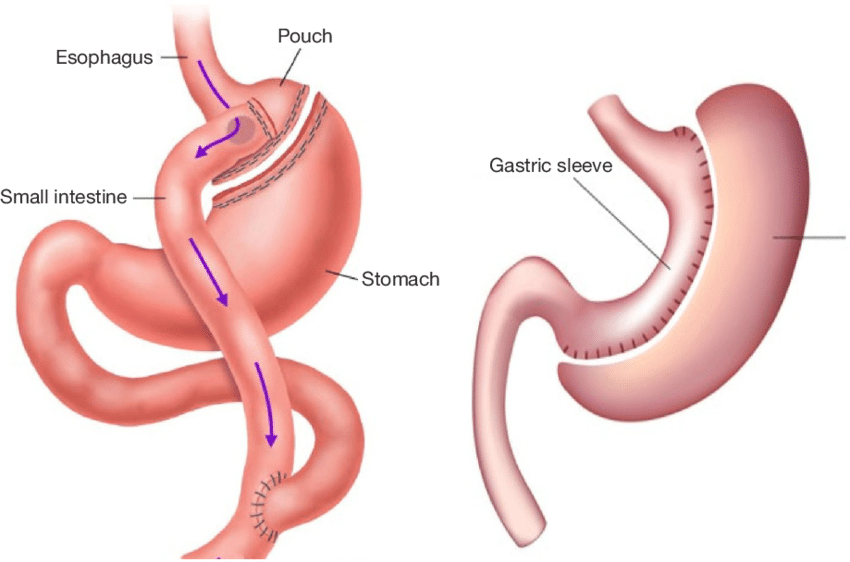
The articles below are shared under the fair use act here for educational purposes and to promote research and for posterity.
Drug, Alcohol Deaths Soar After Weight-Loss Surgery
By Donna Siegfried
THURSDAY, June 20, 2019 (HealthDay News) — A new study offers some sobering news about weight-loss surgery.
People who undergo a gastric bypass procedure called Roux-en-Y are three times more likely than those in the general population to die of drug- or alcohol-related causes, according to researchers at the University of Pittsburgh.
The reason isn’t clear, but laboratory studies have shown that Roux-en-Y surgery changes the way the body reacts to drugs and alcohol.
“The effect is purely physiological, not psychological,” said Dr. John Morton, chief of bariatric and minimally invasive surgery at Yale School of Medicine, who reviewed the findings. “Gastric bypass surgery removes 95% of the stomach. Alcohol receptors exist in the stomach and the liver, so by removing so much of the stomach, people lose the first pass at metabolizing alcohol.”
Morton was not involved in the study but has published research on the topic.
For this study, the Pitt researchers followed nearly 2,500 adults who had weight-loss surgery at one of 10 hospitals across the United States. About eight out of 10 were women and 86% were white. Their median age was 46, meaning half were older, half younger. The patients were followed for seven years.
During that time, 10 of the study participants died of causes directly related to drug or alcohol use.
That included six accidental drug overdoses; one intentional drug overdose; one overdose where intent was unknown; and two from alcoholic liver disease. All 10 had had a Roux-en-Y bypass, which reduces the stomach size and shortens the intestine.
As with other forms of “bariatric” (weight-loss) surgery, having a smaller stomach makes people feel full sooner, so they lose weight.
To compare patient death rates with those in the general population, researchers used a formula called “person-years.” It measures the number of people studied and number of years each participated in the study.
On average, there were 89 deaths per 100,000 person-years among Roux-en-Y patients, compared to 30.5 per 100,000 in the general population, the investigators found.
Study co-author Wendy King said, “Our study primarily focused on those who had Roux-en-Y gastric bypass surgery; it did not examine differences in drug- and alcohol-related mortality among those who had undergone” another type of weight-loss surgery called sleeve gastrectomy.
“New evidence suggests that sleeve gastrectomy may also alter the way alcohol is metabolized in the body, so there is more work to do,” she added. King is an associate professor in the department of epidemiology at the University of Pittsburgh Graduate School of Public Health.
The nation’s most popular weight-loss surgery, sleeve gastrectomy, also removes a portion of the stomach, although not as much as Roux-en-Y gastric bypass. A third type of bariatric surgery is gastric banding, which ties off the upper portion of the stomach.
Because their stomachs hold less, people who undergo bariatric surgery tend to feel the effects of alcohol sooner and after fewer drinks. Researchers said that’s why it is important for patients to pay attention not only to how alcohol makes them feel, but also whether it interferes with relationships and daily activities
…
Source: https://www.webmd.com/mental-health/addiction/news/20190620/drug_alcohol_deaths_soar_after_weight-loss_surgery#2
Alcohol consumption and alcohol problems after bariatric surgery
Objective: Increased sensitivity to alcohol after gastric bypass has been described. The aim of this study was to investigate whether bariatric surgery is associated with alcohol problems.
Design and Methods: The prospective, controlled Swedish Obese Subjects (SOS) study enrolled 2,010 obese patients who underwent bariatric surgery (68% vertical banded gastroplasty (VBG), 19% banding, and 13% gastric bypass) and 2,037 matched controls. Patients were recruited between 1987 and 2001. Data on alcohol abuse diagnoses, self‐reported alcohol consumption, and alcohol problems were obtained from the National Patient Register and questionnaires. Follow‐up time was 8‐22 years.
Results: During follow‐up, 93.1% of the surgery patients and 96.0% of the controls reported alcohol consumption classified as low risk by the World Health Organization (WHO). However, compared to controls, the gastric bypass group had increased risk of alcohol abuse diagnoses (adjusted hazard ratio [adjHR] = 4.97), alcohol consumption at least at the WHO medium risk level (adjHR = 2.69), and alcohol problems (adjHR = 5.91). VBG increased the risk of these conditions with adjHRs of 2.23, 1.52, and 2.30, respectively, while banding was not different from controls.
Conclusions: Alcohol consumption, alcohol problems, and alcohol abuse are increased after gastric bypass and VBG.
Svensson, P., Anveden, Å., Romeo, S., Peltonen, M., Ahlin, S., Burza, M. A., … Carlsson, L. M. S. (2013). Alcohol consumption and alcohol problems after bariatric surgery in the Swedish Obese Subjects Study. Obesity, 21(12), 2444–2451. https://doi-org.xxproxy.smumn.edu/10.1002/oby.20397







